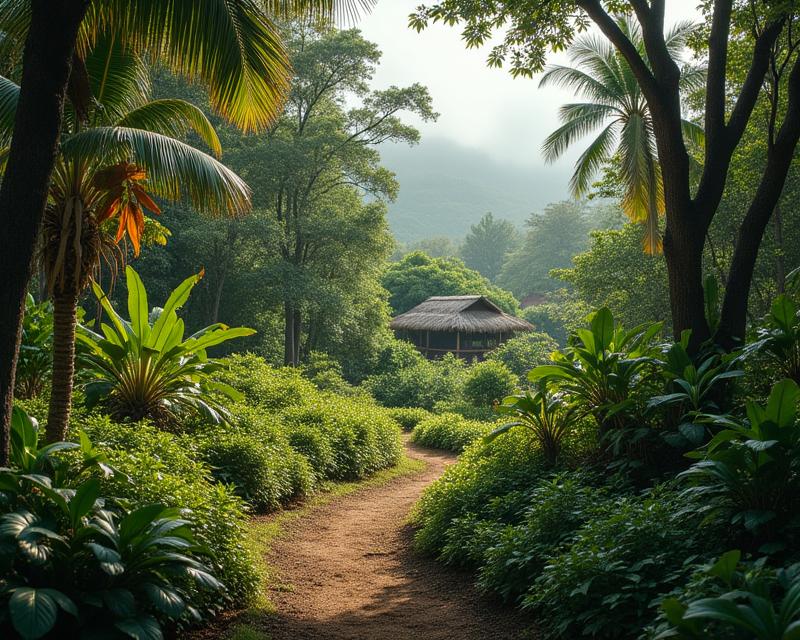Pacific Islander Forest Gardens: A Legacy of Abundance
Publish in Sustainable Farming el 04/07/2025 01:05
Pacific Islander Forest Gardens: A Legacy of Abundance
For centuries, Pacific Islander cultures have practiced a sophisticated form of agriculture known as forest gardening. This isn't just about planting trees; it's about creating layered, self-sustaining ecosystems that provide a diverse and reliable source of food, medicine, and materials. It’s a beautiful example of sustainable agroforestry, and offers valuable lessons for modern farmers and gardeners looking to build resilient and productive landscapes.

What is Forest Gardening?
At its core, forest gardening mimics the structure of a natural forest. Instead of monoculture farming, you have multiple layers of plants – tall trees, smaller trees, shrubs, herbs, vines, groundcovers, and root crops – all working together. This layered approach maximizes space, improves soil health, and reduces the need for external inputs like fertilizers and pesticides. Think of it as a miniature, edible forest!
A Diverse Food Source
The beauty of Pacific Islander forest gardens lies in their incredible diversity. Each layer provides a different food source. The canopy trees might offer fruits like breadfruit, coconuts, or mangoes. Underneath, you'll find fruit-bearing trees like papayas and citrus. Shrubs could provide berries or nuts, while herbs and groundcovers offer edible leaves and roots. Vines might produce sweet potatoes or climbing fruits. This layered system ensures a continuous harvest throughout the year, even during challenging seasons. It’s a fantastic way to build food security and resilience.
Sustainable Practices
Forest gardening is inherently sustainable. The diverse plant community creates a healthy soil environment. Root systems prevent erosion, while leaf litter provides natural mulch and nutrients. Nitrogen-fixing plants, like legumes, enrich the soil, reducing the need for artificial fertilizers. The interconnectedness of the plants also helps to deter pests and diseases naturally. This holistic approach minimizes environmental impact and promotes long-term productivity. It's a powerful model for anyone seeking to move towards more ecologically sound farming practices.
Lessons for Today's Farmers
The principles of Pacific Islander forest gardening are highly relevant today. Whether you're a small-scale gardener, a market farmer, or a rancher looking to diversify, there's much to learn. Consider incorporating layered planting, utilizing native species, and focusing on soil health. By embracing these ancestral techniques, we can create more resilient, productive, and ecologically balanced food systems. It’s about working *with* nature, not against it, to create a thriving and sustainable landscape for generations to come.





